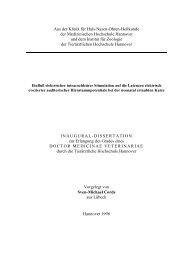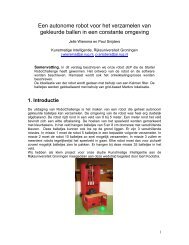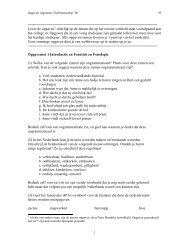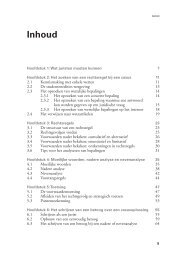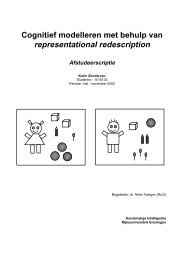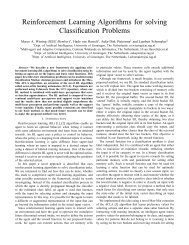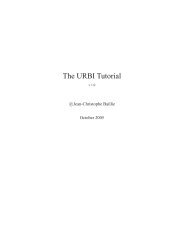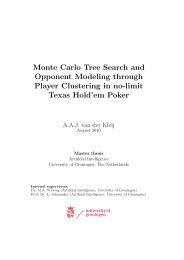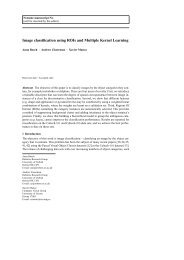Presuppositions in Spoken Discourse
Presuppositions in Spoken Discourse
Presuppositions in Spoken Discourse
Create successful ePaper yourself
Turn your PDF publications into a flip-book with our unique Google optimized e-Paper software.
Conclusions and Implications<br />
7 Conclusions and implications<br />
By now the importance of complement<strong>in</strong>g theoretical work <strong>in</strong> semantics and<br />
pragmatics with the study of naturally produced examples <strong>in</strong> context should be<br />
clear. Many of the results presented <strong>in</strong> this work could not have been obta<strong>in</strong>ed<br />
without look<strong>in</strong>g at corpus data <strong>in</strong> detail.<br />
One of the most helpful aspects of us<strong>in</strong>g corpus data is that it provides<br />
examples that have a naturally produced context. The <strong>in</strong>terpretation of<br />
presuppositional expressions is context dependent, whether they are bound or<br />
accommodated, so hav<strong>in</strong>g examples with a rich context helps <strong>in</strong> understand<strong>in</strong>g<br />
these examples better. Equally important is the context follow<strong>in</strong>g the use of a<br />
presuppositional expression. Without this latter <strong>in</strong>formation, little can be said about<br />
the effects of the presupposed <strong>in</strong>formation, about speaker <strong>in</strong>tentions, hearer<br />
<strong>in</strong>terpretation, and about how the presuppositional expression contributes to the<br />
communicative goals of the participants.<br />
For example, many of the cases of bound presuppositions <strong>in</strong> chapter 4 that<br />
were argued to have discourse functions are generally not the type of made-up<br />
examples we see <strong>in</strong> most semantics literature. Without hav<strong>in</strong>g exam<strong>in</strong>ed the<br />
bridg<strong>in</strong>g examples <strong>in</strong> context I could not have seen the difficulty <strong>in</strong>volved <strong>in</strong> us<strong>in</strong>g<br />
current theoretical assumptions of a s<strong>in</strong>gle anchor. To do empirical work it is<br />
necessary to have a theoretical base. Many of the phenomena or uses of<br />
presuppositions that I found <strong>in</strong> the corpus deserve to be discussed <strong>in</strong> a more<br />
precise way on their own us<strong>in</strong>g a set of systematically chosen made-up examples.<br />
However, I would not have been able to make several observations without access<br />
to the corpus.<br />
The b<strong>in</strong>d<strong>in</strong>g theory argues that presuppositional expressions are anaphoric<br />
expressions, and one of the claims of chapter 4 is that bound presuppositions<br />
183



